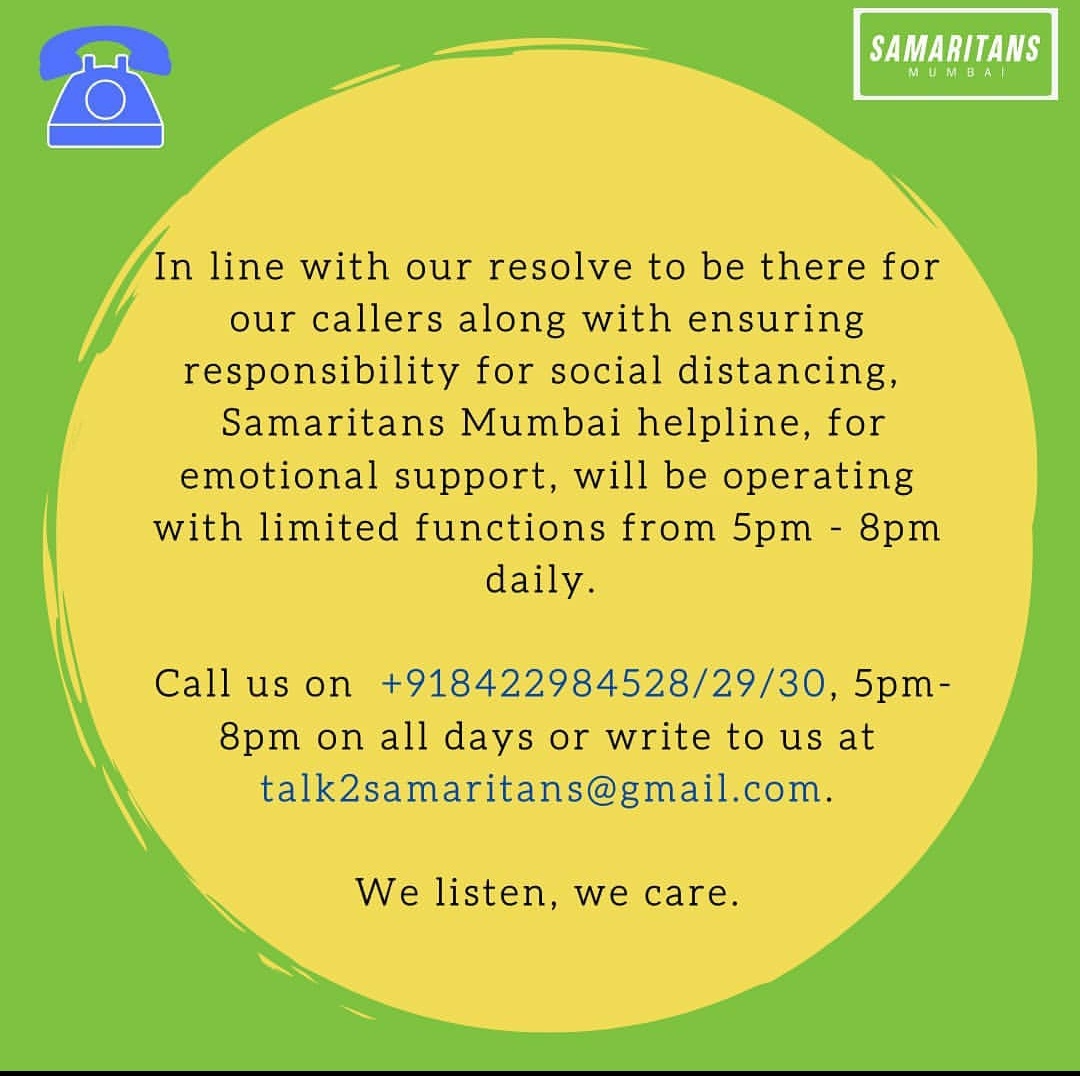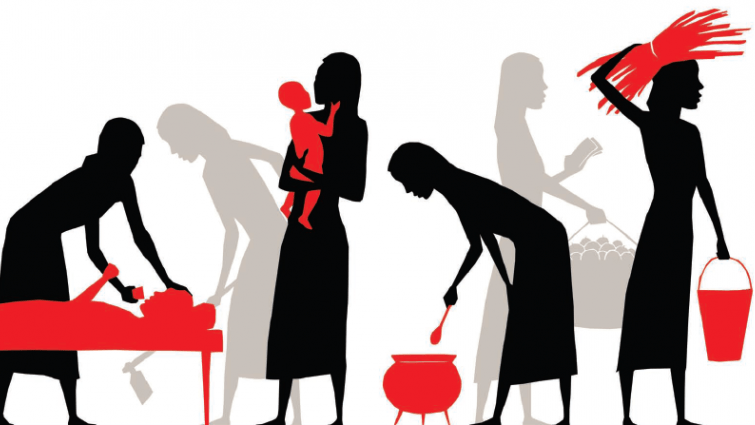Translations: Bengali | Kannada | Hindi | Malayalam
Suicide is a word loaded with the sentiments of dismay, despair and the fear of death. This often stops us from having a discussion about suicide. However, if we freely talk about it, we can surely get to know the risk factors behind any suicide ideations and may perhaps even prevent suicide. So, what are the myths and facts regarding suicide? How can we save our loved ones from the clutches of suicide? How can we lead such individuals towards the hope of living?
The World Health Organization (WHO) considers suicide as the biggest social issue that plagues all of humanity. Suicide doesn’t only spell death for the individual who chooses to go through with it, it also spells doom for the entire family of that individual. The choice of one person makes their family the bear its ripple effects. Hence, it is crucial that we take more efforts to prevent suicide.
The World Mental Health Federation (WMHF) was founded in 1948 with its aim as the prevention, diagnosis and cure of mental disorders. It also endeavors for the promotion of mental and emotional care and wellbeing among the masses. In 1992, this organization declared 10th October as the World Mental Health day. This has given the member nations an opportunity to spread awareness regarding various related topic among its populace. In the same way, 10th September is chosen to be celebrated as the World Suicide Prevention day. This year, the motto was ‘join hands to prevent suicide’.
According to the WHO, every year, around 8 lakh people choose to die by suicide. What is more concerning and devastating is that not just adults, even children and the youth choose this option. According to studies, it seems like the most common reason of death of people between 12-25 of age is suicide. Reasons such as violence, exams pressure, academic failure, heartbreak, sexual abuse, cyber bullying are a few among other factors that push the young generation into a pit of deep despair.
Suicide prevention is a global challenge and demands collective efforts. Not only does a single choice of suicide steal someone a chance at having their natural lifespan but it also causes irrevocable harm to the mental health of the family concerned. This fact highlights the importance of the WMHFs motto of ‘join hands to prevent suicide’. The motto calls for all nations to give importance mental health in their welfare programs and consider the cause of suicide prevention in a serious manner. Suicide is considered to be a mark of shame in the society; hence it is always kept under wraps.
However, talking freely about it is important to recognize the risk factors behind any suicide ideations.
‘Suicide ideations’ is a complex concept. Experts suggest that suicide ideations or the wish to end one’s life is never due to any one specific life event. Often, the very last event before a person ends their life just serves as the final blow to their already battered mind. The final act is a result of various events that keep piling up making things progressively worse for the individual. One must realize that people who decide to end their lives may not necessarily not want to live. They may be so lost in their problems and be so overwhelmed that they see suicide as the only solution or perhaps an only escape from all of it. This is often confirmed by the survivors of an attempted suicide.
Suicide is a word loaded with sentiments of despair, pain, frustration and other such negative feelings. Suicide is something which is very shocking. Since, it is closely related to death, the mere concept of it can be unsettling to deal with. As a result, very little is spoken or discussed about suicide. This leads to people missing out on the glaring signs of suicide ideations. This spreads a lot of myths about the entire concept. It is this essential to acknowledge the false perceptions surrounding suicide and rectify them.
Myth: Those who keep talking about taking their life, never actually do it
Fact: 8 out of 10 people contemplating suicide have given clear signs of their intentions many a times
Myth: Talking about suicide can put the idea of killing oneself in the mind of the vulnerable people
Fact: Talking about suicide comforts the person contemplating it. It makes them feel as if someone understands them, care about them. It can give the vulnerable person a hope that their call for help might be answered.
Myth: People who choose to kill themselves are selfish individuals who take the cowards way out.
Fact: People who attempt suicide experience intense feelings of distress and mental agony. They feel helpless and trapped; the pain is too much for them and are unable to think rationally. They do not see suicide as a ‘choice’ but as a ‘last resort’.
Myth: Once a person attempts to die by suicide, the urge to finish what they started, forever remains with them
Fact: Those who attempt suicide experience an unimaginable amount of mental anguish. Their urge to end their life stems from this disturbed state of mind. Such individual’s coping skills are affected and not their passion for life. Even after failed attempts, a person can live a happy, healthy and successful life.
Myth: Each individual who chooses to die by suicide has a mental disorder
Fact: Studies prove that not all individuals with mental disorders attempt suicide and not all people with suicide ideations suffer from some mental disorders.
Myth: Suicide is a phenomenon, more often seen in the very rich and the very poor economic class
Fact: Economic status and suicide ideations need not be related.
Myth: The survivors of an attempted suicide do not try to attempt it again for they feel ashamed and apologetic.
Fact: Three months post the first attempt is crucial period for the induvial may attempt it again
Signs of suicidal ideations in an induvial
Long lasting sadness or feelings of despair. Feeling very solemn and often being lost in thoughts. External events like academic failure, relationship problems, loss of loved one, accident etc may trigger such feelings too.
Behavioural changes to keep an eye out for
The individual isolates from everyone, avoids socialising, loss of interest from what they previous liked, lack of efforts behind one’s appearance, alcohol or drug abuse, being careless and indulging in unnecessarily risky behaviour like putting oneself in danger on purpose, not caring about one’s safety, focus on short terms plans that are centered around bidding farewell to everyone and everything like giving away their valuable things, making a will, writing a suicide note etc.
Can we really prevent suicide?
It is important to take a person who talks about ending their life seriously. It is essential that we pick up on the signs of suicide ideations and get intervention in time. If we suspect that someone around us might be getting suicidal thoughts, one must be very direct in asking them about it. It is often seen that individual who have suicidal thoughts are in dire need of a patient ear who can be there for them and support them. They need someone to listen to their dark thoughts so that they feel less lonely.
The mental state of survivors of suicide
After passing a brief phase of being numb, the survivors of an attempted suicide feel confusion, anger towards themselves and a sense of guilt. ‘What next’ is a question that adds to their mental turmoil. In such a vulnerable state, the support of family and friends proves to be a boon. One must realise that giving unconditional support to such individuals is very important and that expressing anger towards them, blaming them or pointing fingers at them will solve nothing.
The mental state of the family members after losing a loved one to suicide
Just like when one loses a loved one to a sudden accident, losing a loved one to suicide is shocking, unbelievable, disheartening and traumatic. The family members often feel a sense of failure and guilt as they think ‘maybe I didn’t give him/her enough love and affection, maybe it is my fault.’ They often are left feeling angry towards the departed person and are very confused and unsettled. This is the time when such lost and overwhelmed grieving family members need emotional support; a person to whom they can share their burdens with. Someone who doesn’t lecture them but just supports and help the person process everything. We live in a society where giving this space and support is very crucial. It can be given and it should be.
Helpline:
SAMARITANS MUMBAI
8422984628/29/30
(All days 3 Pm- 9 Pm)
samaritans.helpine@gmail.com
talk2samaritans@gmail.com








